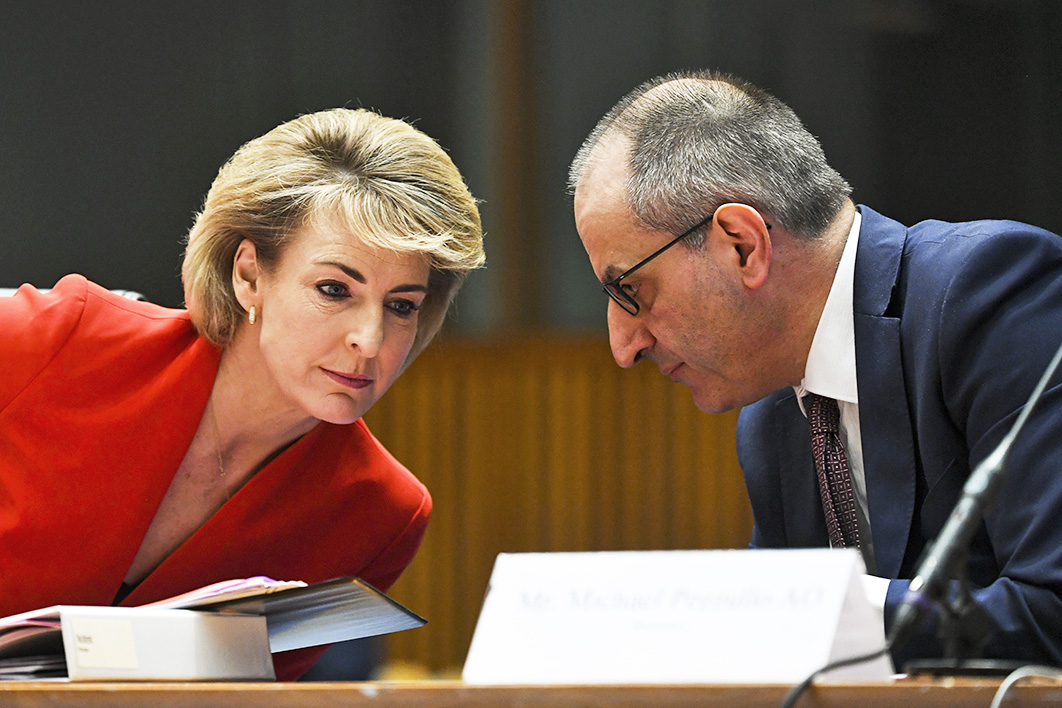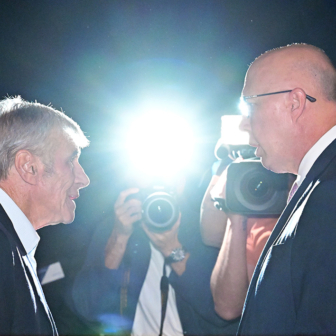A crisis is hovering behind the scenes of Victoria’s much-anticipated release from pandemic lockdown. In suburbs around Melbourne, the longed-for announcement that businesses and retail can reopen is expected to trigger the eviction from their homes of over one hundred refugees and people seeking asylum, who have been living in community detention while they await visa decisions. Already, the federal government has evicted some of these people from community detention around Australia, withdrawn their subsistence income payments and given them six months to leave the country.
Last month the Refugee Council of Australia warned premier Daniel Andrews that 164 people in his state were set to be moved from community detention, with no provision for ongoing housing or support. Sixty had already been removed in New South Wales, seventy-six in Queensland, thirty in South Australia and twenty-two in Western Australia.
Home Affairs officials confirmed on Monday that the numbers have since increased in all states but Western Australia. In response to a question from senator Nick McKim at a Senate committee hearing, they confirmed that it is the department’s “intention” to include Victorian cases among another 300 community detainees targeted for removal.
As the department describes it, the removal process gives people three weeks of “transitional support,” during which time they can stay in their current government-provided housing and receive their last income payment. Once the transitional period is over, they have the right to work (though no guarantee of a job) and to Medicare, but have lost their accommodation and government benefit.
Senator McKim expressed surprise that the move was proceeding during a pandemic and recession. Were people in Victoria on hold, he asked, or had “a decision been taken that, once a certain thing happens, then the people in Victoria can start receiving these [bridging visa] grants?”
“No decision has been taken on what that milestone would be,” replied the department’s Justine Jones.
The government provides a six-month final departure bridging visa to people being moved on from community detention, by the end of which they are expected to have left Australia, either for their home country or to return to Nauru or Papua New Guinea. Having vacated their homes and lost their government-funded income payments, they are expected to find housing and provide for themselves.
The current community-detention cohort of more than 570 people are not allowed to work or study, and so must rely on the government for their housing and a monthly allowance. They can move about during the day but must be at their assigned accommodation each night. Children can go to school, but school camps, for example, are off-limits without written permission from authorities.
As refugee advocate Pamela Curr points out, these people have had no chance to prepare themselves for work. “Their chances of finding jobs to fully support themselves and, in some cases, their children would be tough at the best of times. To require that of them when unemployment is higher than it has been for decades is a test of Olympian proportions.”
Curr’s assessment is backed by Sister Brigid Arthur, joint coordinator of the Brigidine Asylum Seeker Project, which has been providing emergency funds, food and other material aid to refugees and people seeking asylum since 2001. The project is a Melbourne-based initiative of the Brigidine Sisters.
“We are preparing for a crisis to hit,” says Arthur. “We estimate that we need to find another one hundred accommodation units to house families and individuals likely to find themselves homeless within the coming month.” Adding to the difficulty, she says, is the fact that agencies like hers must deal with a “climate of secrecy and lack of any rationale which would allow us to understand exactly what is about to happen and why it is happening.”
The Australian Border Force is responsible for immigration detention, including community detention of those previously held on Nauru or PNG who were brought to Australia for medical treatment, mostly in the years before the since-repealed medevac legislation came into effect. Management of the people in community detention and their needs is contracted out to organisations including AMES and Life Without Barriers in Victoria. Other church and community welfare agencies are among the contracted providers in other states.
The Border Force, led by commissioner Michael Outram, is an operationally independent statutory authority within Peter Dutton’s home affairs portfolio. The published organisational structures of the department and the Border Force don’t make clear to whom Mr Outram reports, so it is assumed to be Minister Dutton. This makes it difficult to say whether the decisions and actions of Border Force fit into any coherent implementation of refugee policy or ministerial priorities.
“Having had seven years to find a solution to the dilemma of what to do with refugees covered by a ‘never, ever’ ban on settling in Australia, we say that this is a proven policy failure,” Curr says. “But we don’t want to criticise without offering a better way.”
Curr and Arthur have offered an alternative process that would see the Morrison government move people from community detention to a new community protection visa with full work and study rights, and access to Medicare, JobSeeker and continuing housing and income, until they are securely supporting themselves.
Arthur believes there is time to avoid the crisis about to hit in Victoria if the federal government willingly works with those who are concerned, informed by experience and well connected in the refugee support sector.
Advocates like Arthur and Curr may well be among the “informed citizenry” Mike Pezzullo had in mind when he addressed the National Security College at the ANU last week. Summarising his vision of national security as a “positive and unifying force,” he said that it should not entail the administration of fearful and anxious subjects.
“Security should be contested by an informed citizenry who share a common horizon of threat awareness and agency in relation to risk and opportunity,” he continued. “On this reading, security is a dialectic between the state’s mandate and capacity to act, and the population’s collective specification of the trade-offs and the costs that it is willing to bear in the name of protection and survival.”
This suggests a shift in the national security narrative. Since prime minister John Howard declared in 2001 that “we will decide who comes to this country and the circumstances in which they come,” refugee policy has been framed as a border security issue. It was further entrenched in security debates by the actions of prime ministers Kevin Rudd and Tony Abbott.
After two decades, the trade-off in Australia’s current refugee policy is indeed contested. Refugee advocates see many costs — denial of human rights, trauma compounding harm, punitive treatment of people seeking protection — but no greater sense of security.
Figures in this month’s federal budget indicate that the government is continuing its push to reduce the cost of support for asylum seekers, which commenced in last year’s budget. But with costs reported in a fragmented manner across departmental programs, it is difficult for interested citizens to assess the full picture. With the department’s broadbrush response to my detailed questions shedding no new light, it can’t be said definitively whether the move to evict people from community detention is a cost-saving measure or a response to other, possibly political imperatives. Decisions on removing people from community detention are put directly to the minister on a case-by-case basis.
There is, however, clear provision in the budget for a further $55.6 million to “reactivate” the Immigration Detention Centre on Christmas Island, which was placed on a contingency setting last year. The Kaldor Centre’s analysis of the budget finds that “onshore compliance and detention” expenditure in 2020–21, set at $1 billion, includes voluntary return packages and the management of onshore detention facilities.
These facilities include traditional fenced-and-locked facilities as well as the hotels and motels where around 160 men medevaced from PNG and Nauru in 2019 are being held. So far, these men — in the Kangaroo Point Central Hotel in Brisbane and the Mantra Bell City motel in suburban Melbourne — have not been included among the proposed evictions from community detention. Neither have those who still have a chance of resettlement in the United States. According to the home affairs department, “The US government continues to progress cases under the resettlement arrangement. Those actively engaged in the US resettlement process are able to continue with this process.”
Many of those in Victoria who are expected to be moved out of community detention in coming weeks are aware of what has happened in other states. “Everybody is talking about it,” one resident told me. “But our immigration case worker has said nothing. We don’t know. We are just waiting. We are always waiting.” •




